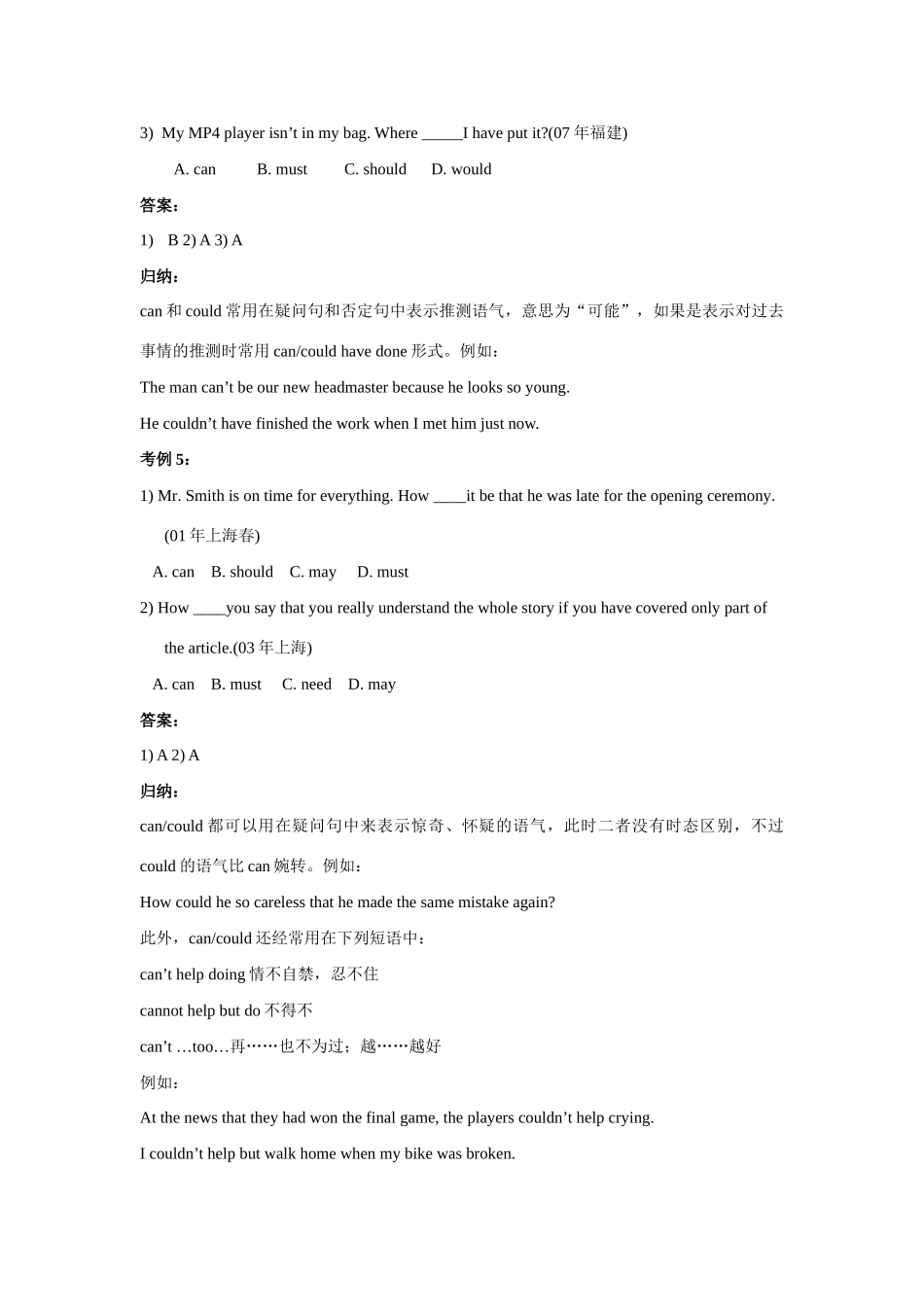常见情态动词用法及考点归类实例解析情态动词的用法是英语语法中的一个重要组成部分,用来表示说话人对动作或状态的各种观点和态度,可以表示能力、必要、猜测、意愿或怀疑等。情态动词有一定的意思,但不完全,需和一定的动词原形一起构成谓语,它们在语义功能上经常出现相互交叉的现象而且这几年随着高考改革越来越侧重于“突出语篇,强调应用,注重交际”,情态动词由于其本身的功能作用,也就成了历年各地高考中的“常客”。本文将结合高考例题,让同学们“身临其境”地来感悟情态动词的语义功能。一:can/could考例 1:1) What a pity! Considering his ability and experience, he _____better.(08 年江西) A. need have done B. must have done C. can have done D. might have done2) You don’t have to know the name of the author to find a book. You _____ find the book by the title.(08 年湖南) A. must B. need C. can D. would3)The fire spread through the hotel very quickly but everyone______ get out.(97 年全国) A. had to B. would C. could D. was able to 答案:1)C 2)C 3) D归纳:can/could 可以用来表示一种泛指的能力,意思为“能够”,could 是 can 的过去时形式。如果要表示特指某一次具体做某事的能力常用 be able to。can/could have done 可以表示过去本来有能力做某事。例如:I can swim across the river easily. But today I am so tired that I’m not able to swim across it.考例 2:1)---Mum, I’ve been studying English since 8 o’clock. _____I go out and play with Tom for a while? ---No, I’m afraid not. Besides, it is raining outside now.(04 年辽宁) A. Can’t B. Wouldn’t C. May not D. won’t 2) A left-luggage office is a place where bags ____be left for a short time, especially at a railway station.(03 年全国)A. should B. can C. must D. will 答案:1) A 2) B归纳:can 和 could 都可以用来表示请求或许可,在疑问句中表示请求时,使用 could 比 can 语气更加婉转而没有时态之分;不过在表示许可的回答中之用 can 而不用 could。例如:---Could/...


